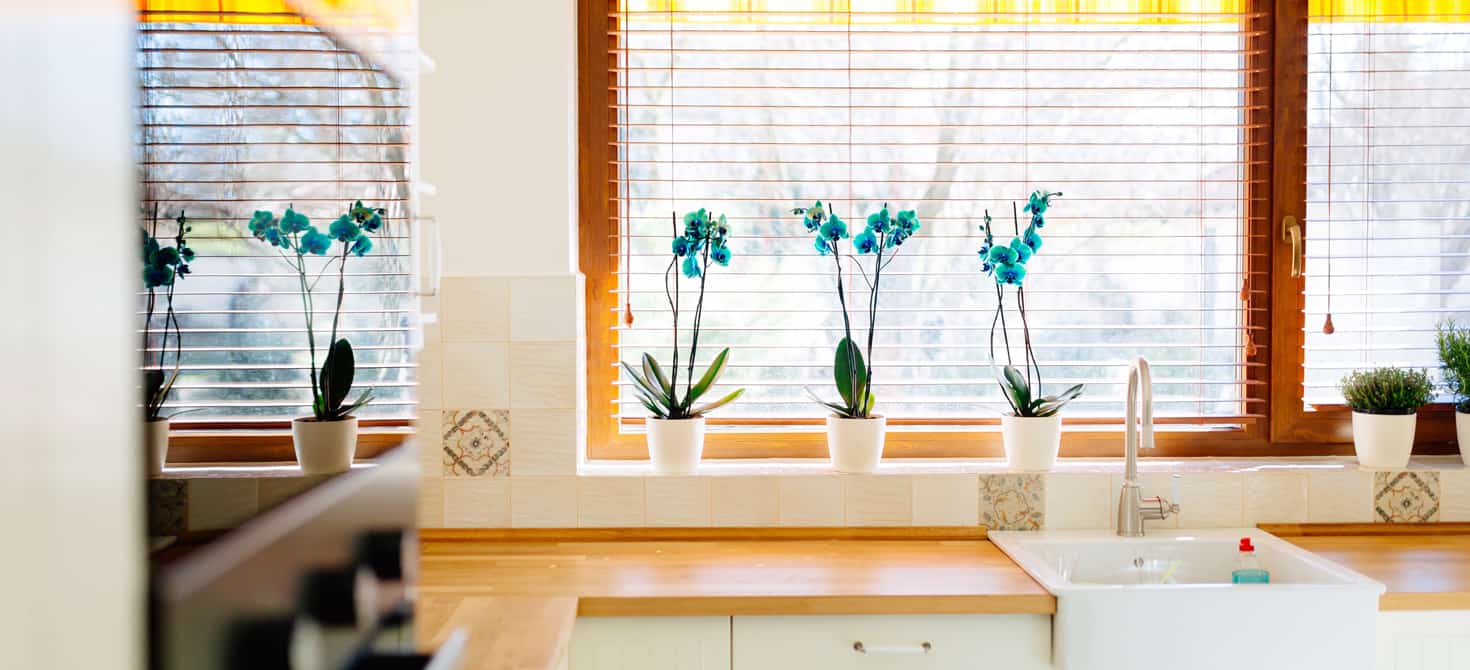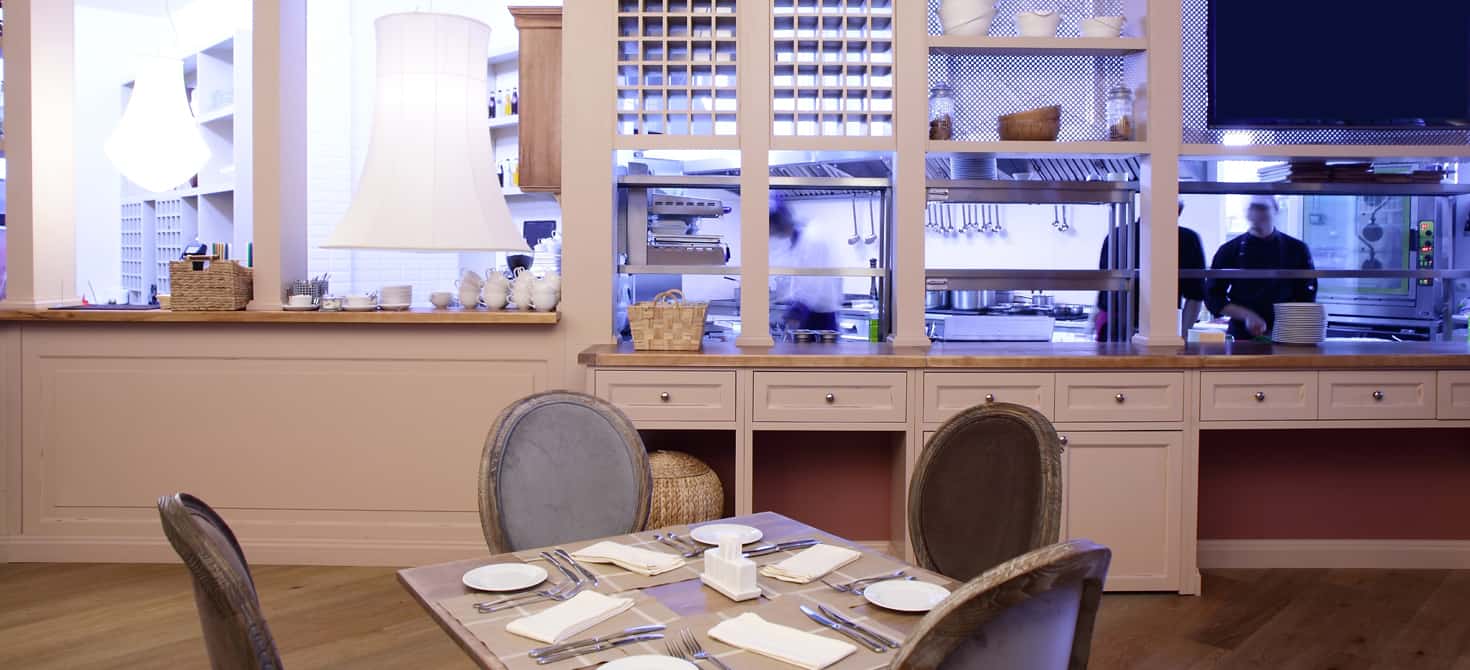- Furnishing tips
- 0 likes
- 3464 views

Masonry kitchens: these furnishings capable of expressing great charm and suggestion are often associated with a rustic and old-fashioned style. Masonry kitchens, on the other hand, are perfect to be combined with any type of style: the great advantage of a masonry kitchen is in fact their great possibility of customisation (practically infinite).
In the construction of a masonry kitchen it is also possible to use a great variety of top quality, non-prefabricated materials.
Here is everything you need to know about masonry kitchens.
Index
The great fascination of modern masonry kitchens
Modern masonry kitchens express themselves in particularly slender and fresh lines that denote the personality of these structures. For the creation of a modern masonry kitchen, minimalist tiles, light wood, and even light marble or alternatively aluminium tops are now used: with the use of aluminium elements it is possible to create a kitchen with an industrial flavour, which recalls the environments used by great chefs.
In a modern masonry kitchen, plasterboard is often used to hide the hood or to create ad hoc shelves, so as to make the best use of all the spaces available.
There is also ample space for resin, used for floors but also for vertical surfaces. Resins can also be used for the worktop, thus ensuring perfect cleaning and very high resistance to impact and erosion.
The great tradition of rustic masonry kitchens
In rustic kitchens characterized by a more dated style, ample space for wood, square tiles and classic lines in general. For this type of structure, the use of exposed bricks, capable of creating a visual effect of great impact, is certainly not bad for this type of structure.
Small masonry kitchens
A space characterized by a limited size will need a small masonry kitchen. There are many people who do not have large spaces but who do not want to give up the comfort of a masonry kitchen.
In these circumstances the ideal solution can only be to choose a masonry kitchen without furniture. This is an extremely practical and functional alternative solution, in which it is possible to combine space and tiles directly in the structure. The result will be a particularly cool environment, particularly suitable for small houses and in particular for beach houses.
Tops and cladding materials in a masonry kitchen

In a masonry kitchen the top and cladding materials must be chosen according to your needs and personal taste. In this regard it is good to consider with the utmost attention the aesthetic effect that we want to give to the environment.
Probably the best top we can choose for a masonry kitchen is the marble one. This material allows us to give free rein to our imagination, without being too afraid of ruining the cladding. Marble is in fact a material able to resist in an optimal way to temperatures and will not have any kind of problem with hot pots.
Alternatively you can opt for a wooden kitchen top: obviously wood is less resistant than marble and ceramic tiles. The latter are also perfect for the top, if you love the classic style. In this regard you can decide to use the same tiles that you will use to cover the walls behind the hob, even for the floor. Choosing one tile over another will make all the difference in the style of your rooms. For this reason the choice of tiles for the kitchen wall covering is an operation that must be done with the utmost care.
When choosing the tiles most in line with your stylistic tastes, you must pay particular attention to two extremely important elements: the colour of the tiles and their decorations. Choosing the colour and decoration of a tile is not at all easy, since the aim is to create a certain harmony that does not weigh down your eyes.
Many people prefer particularly bright colours when choosing tiles in the kitchen. Our advice is instead to prefer clearer and more natural colours and hues.
Masonry kitchen: fixed or industrial modules?

You can choose for your environment, a kitchen made with the help of fixed modules, built and built directly on site or alternatively a kitchen made with industrial modules (prefabricated masonry kitchens).
If you opt for the choice of a masonry kitchen with fixed modules, you will not be able to decide in the future to modify the structure of the furniture, except with new masonry work. For this reason, if you are not completely convinced by this type of masonry kitchen, it will be better to opt for a prefabricated masonry kitchen, so that you have the possibility to modify it in the future with ease and without the need for new masonry work.
In fact, prefabricated modules are the ideal solution to change the composition of the kitchen to your liking and to move the furniture with extreme ease in case of moving.
Fake masonry kitchen
Kitchens in imitation masonry are made with the help of mdf structures, or alternatively in plywood or laminate. The structure is then covered with tiles, in order to make them visually equal to real masonry kitchens.
It should be pointed out that even a prefabricated masonry kitchen can perfectly render the desired aesthetic effect, without anyone noticing that it is a fake masonry kitchen. Special masonry kitchens for outdoor use are also available on the market.
Choice of appliances in a masonry kitchen
Independently of the purchase of a fake masonry or real masonry kitchen, it is good to carefully consider some rules when choosing and preparing appliances. First of all it is necessary to pay due attention to the size of the modules: they must be standard, so as to allow the insertion of appliances such as oven, refrigerator, hob, etc..
We will have to pay particular attention to the height of the base units, the depth of the top and the height of the wall units. However, it should be noted that prefabricated masonry kitchens are almost always delivered to the customer with the appliances already installed.
Obviously, the choice of appliances can also greatly influence the style of a masonry kitchen. In fact, you can choose vintage refrigerators, perfect for a rustic style, or alternatively American style, classic or country style refrigerators.
Main disadvantages of a masonry kitchen
Let's see below the main disadvantages of a masonry kitchen:
- A masonry kitchen made with the help of fixed modules cannot be moved during maintenance work
- Often and willingly for the installation of a masonry kitchen it is necessary to have a considerable amount of space available in one's own rooms.
- The prices of masonry kitchens are considerable: there are higher labour costs in these furnishings, but you can still save some material costs.
